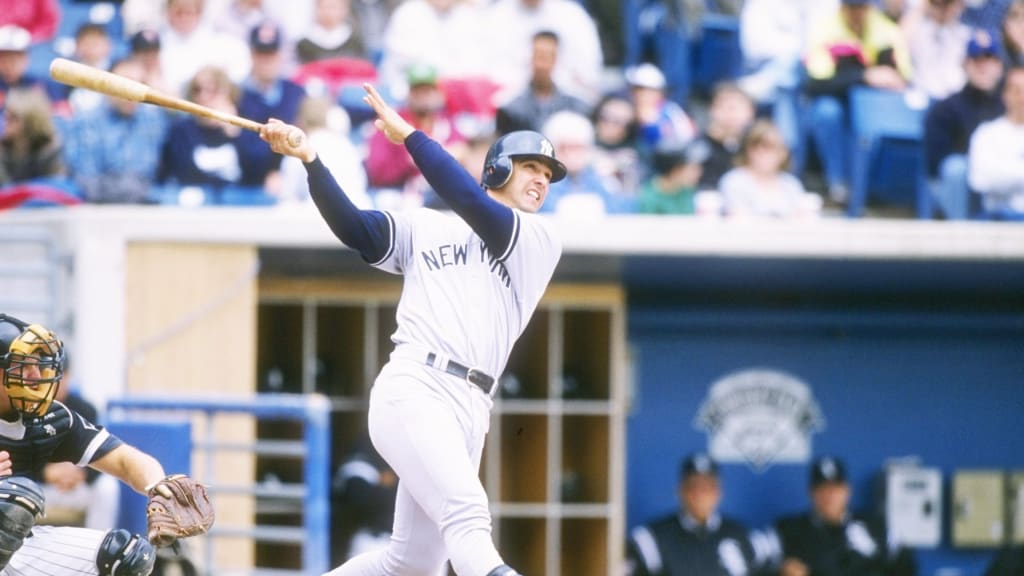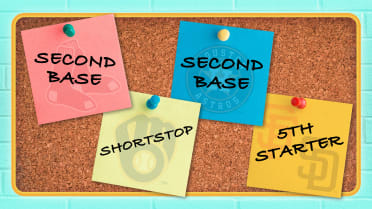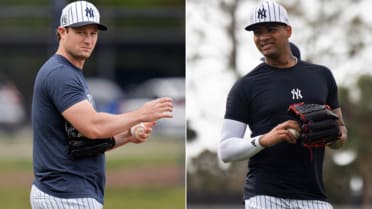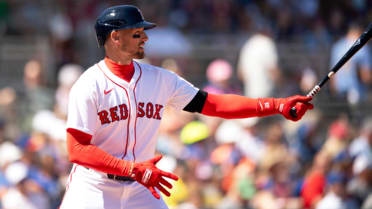Here's how the Yanks landed Jorge Posada

The more things change, the more they remain the same.
Jorge Posada is 50 years old now. He played his last big league game nine years ago, the culmination of 17 years in the Majors with the Yankees, which included five World Series rings, five All-Star appearances and five Silver Slugger Awards. It’s been more than three decades since Leon Wurth -- the area scout who signed him -- laid eyes on him, but there’s still one thing Wurth would take from Posada and instill in every player, if he could.
“His competitive nature,” Wurth said. “His ability to focus. One-hundred and sixty-two games are a lot. It doesn’t seem like much, but he had an ability to maintain that focus throughout. Every time I saw him play -- and it wasn’t just because I was there, some games he didn’t know I was there -- every at-bat, he was able to maintain his focus and intensity, and mentally that’s hard to do. His competitive nature and his drive were impressive, to a point that you just don’t see all the time.”
Right place, right time
Wurth inherited Posada back in the draft-and-follow days. After graduating from Colegio Alejandrino, his high school in Puerto Rico, Posada went to Calhoun Community College in Alabama and in 1989, the Yankees selected him in the 43rd round of the Draft, following him into his sophomore year. The area scout had his sights set on the young shortstop from the first glimpse he got of him, when Posada’s squad came to play against a junior college just outside of Nashville, where Wurth was living at the time.
Claiming just to be “in the right place at the right time,” Wurth saw Posada homer from both sides of the plate in his team’s doubleheader, also showing plenty of arm and good actions on the infield.
“His skillset was advanced,” Wurth said. “He knew how to field a ground ball and do different things of that nature. And he had a really good day. But particularly in amateur ball, you’ve got to know when a kid’s having a bad day or a good day and whether that’s what he’s going to be. But Jorge had a very good day.”
It was a bright spot in a less-than-stellar sophomore season for Posada, but over time, Wurth believed there was a lot to like, beyond the numbers.
“He had a pride about him that he didn’t want to get beat,” the scout said. “And he just liked to compete. He was very competitive. I would watch players when they struck out to see how they reacted. A lot of really good high school players are used to competing and winning, and they get to the Minor Leagues and they’re facing the best competition they’ve ever faced.
“They’re going to fail; baseball’s a failure game. And I would watch their reactions. If Jorge struck out, the next time up you would see a look in his eyes. When he was on deck, you knew he was not going to do that again. That’s what you look for.”
Officially a Yankee
At the time, Jorge Posada Sr. was a scout -- who spent a 40-year career in baseball with the Rockies, Blue Jays, Braves, Astros and Yankees -- and didn’t think his son was mature enough to sign. But knowing there had already been an offer on the table from the Yankees, Wurth figured the infielder’s father would select him the following year. Instead, the Yankees got him again in 1990, this time in the 24th round, and this time for good.
Posada started his professional career as a second baseman. Originally, Wurth viewed the young player as a utility man who could play the outfield, potentially second and third, but with a bat that would carry him. Then he heard he might have spent a little time behind the plate. Wurth saw him catch once as an amateur, when the primary catcher for his summer league team was sick. It wasn’t pretty, Wurth remembers, but he wasn’t flinching.
“Jorge was an athlete,” Wurth said. “We drafted him, and he was so raw that he played second base at Oneonta. He didn’t make the switch until the fall in instructional ball, and he was pretty bad. One scout told me he went to a game and got a good look at him because he was always chasing the ball back to the screen.
“But his work ethic, and growing up in baseball with his dad being a scout helped him. It’s tough to make a position change but he was impressive with the way he went about his business, he was totally focused every at-bat, and at shortstop, with his ability to hit from both sides of the plate, and his makeup. I told my boss his makeup was very good. As it turned out, it was better than that.”
Behind the dish
Brian Sabean, now the executive vice president of the Giants and then the Yankees’ scouting director, has a clear recollection of being sold on Posada’s ability to catch by Wurth, even 30 years after the fact.
“He really liked the fact that he was a switch hitter, he thought that he had enough athletic ability to eventually convert to catcher … and he really was sold on his determination to succeed,” Sabean said. “Jorge had a really good work ethic and bought into the fact that he may have to change positions.”
“We all grew to appreciate and see that once he was playing and he found it relatively easy to convert to catcher. His ceiling each year became higher as he played more with the experience he was getting at whatever level.”
Posada elevated his ceiling to heights that no one had imagined for him all those years ago. But one man pushed for him harder than anyone else.
“I have to give Leon, the area scout, all the credit in the world,” Sabean said. “Gravitating towards him for the right reasons and then more so have the conviction to really believe that he was serious about learning a new position.”
Added Wurth: “His sophomore year, I was getting laughed at because he didn’t really play well. But to be as consistent with his offensive numbers at that position for as long as he did, and be a five-time All-Star, win all those World Series rings, that’s huge. His consistency and longevity are amazing. I’m not sure I could say I knew what he was going to be, but I liked him better than everybody else did.”
Alexis Brudnicki is a Canada-based Baseball Development and Special Projects reporter for MLB.com.




